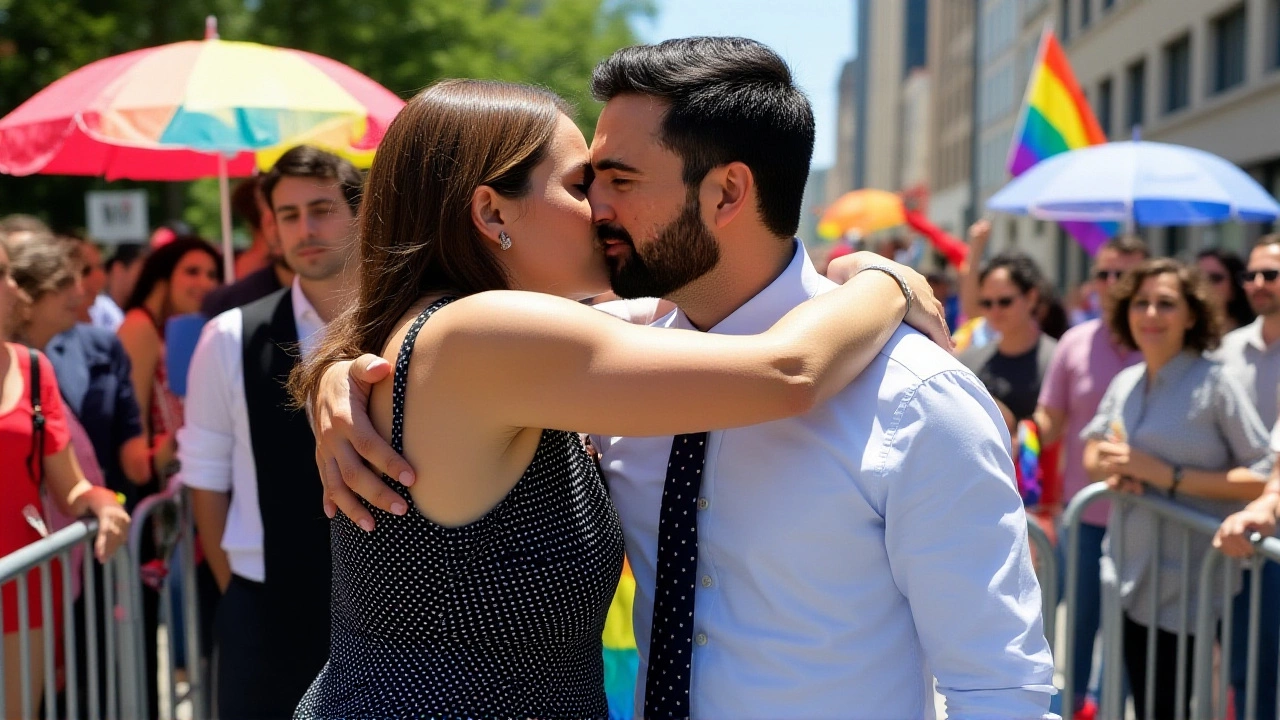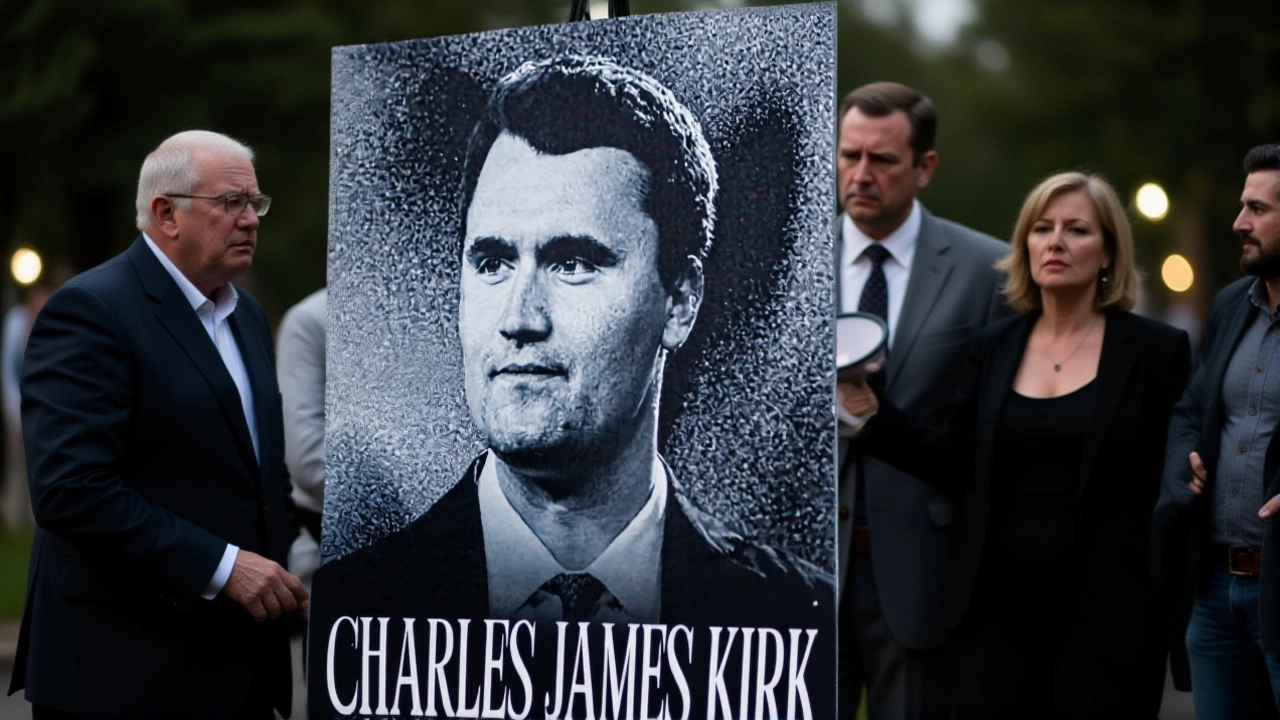When Jimmy Kimmel, late‑night host of ABC joked about a supposed assassination of Charlie Kirk in September 2024, a fresh poll sparked a heated debate over free speech limits in the private sector. The survey, carried out by RMG Research and the Napolitan News Service between September 28 and 30, asked 1,000 registered voters whether companies should fire employees who celebrate political assassinations online.
Methodology and headline numbers
The poll used live‑interview telephone sampling across all 50 states, yielding a margin of error of ±3.1 points at the 95 % confidence level. Overall, 51 % of respondents said it was appropriate to terminate employees for such comments. The partisan split was stark: 80 % of Republicans backed firings versus just 27 % of Democrats, while 32 % of Independents sided with the Republican view.
A second question probed whether journalists or public officials should be dismissed for similar remarks. Here, 59 % said yes, with Republicans again leading at 88 % compared with 34 % of Democrats.
Why the poll matters now
The timing is no coincidence. ABC suspended Kimmel for a week after his monologue on September 23‑24, where he said, "They're desperately trying to characterize this kid who murdered Charlie Kirk as anything other than one of them." The network reinstated him on September 30 following a tidal wave of backlash against its parent, The Walt Disney Company. Disney’s shares (NYSE: DIS) slid 1.7 % on September 26 as investors worried about reputational risk.
FCC Chairman Brendan Carr, a Trump appointee, warned on September 25 that the regulator could see “additional work” if networks continue to tolerate such commentary. While the FCC has no direct authority over programming decisions, Carr’s comments hint at potential rulemaking that could tighten corporate conduct standards.
Voices from the political aisle
Former President Donald J. Trump blasted Kimmel’s reinstatement on his Truth Social platform on October 1, calling ABC "Fake News" and accusing the network of "putting the Network in jeopardy by playing 99 % positive Democrat GARBAGE." The tweet ignited a flurry of supportive retweets from conservative lawmakers and pundits.
On the other side, several Democratic senators issued statements defending Kimmel’s right to satire, arguing that punishing comedians for exaggeration would set a chilling precedent for artistic expression.

Legal and academic perspectives
Legal analyst Lukas, speaking to The Center Square on September 30, reminded listeners that "an employee's right to free speech does not include a right to employment." The comment echoes longstanding Supreme Court rulings that private‑sector speech is generally subject to employer discretion.
Meanwhile, the American Civil Liberties Union (ACLU) filed an amicus brief in the Utah Valley University case, warning that private‑sector speech restrictions could "create dangerous precedents for public discourse." The university had recently fired a graduate assistant for a social‑media post praising a hypothetical assassination, adding fuel to the national conversation.
Broader implications and next steps
Experts see this poll as a barometer of a deeper cultural clash. Scott Rasmussen, founder of the Napolitan Institute and president of RMG Research, said on October 2, "The poll shows that early reactions have been just as partisan as everything else in the political world." He added that the divide mirrors Gallup trends showing a 35‑point gap on free‑speech issues since 2016.
Looking ahead, the FCC is expected to release a draft proposal on employer‑speech policies by December 15, 2024. Universities across the Utah System of Higher Education have pledged to revise their conduct codes by January 31, 2025, aiming to balance campus safety with First‑Amendment protections.

Public reaction and social media buzz
On Twitter, the hashtag #KimmelSuspension trended for 12 hours, with users split between condemning the jokes as "dangerous rhetoric" and defending them as "satire that pushes boundaries." On Reddit’s r/politics, the poll thread garnered over 45,000 upvotes, sparking side‑by‑side debates about whether private companies should act as de‑facto speech monitors.
In the weeks that followed, ABC’s viewership dipped 3 % during Kimmel’s absence but rebounded to a record high after his return, suggesting that audience fatigue may be less of a liability than brand‑image concerns for advertisers.
Frequently Asked Questions
What did the poll ask about firing employees?
The survey asked whether private companies should terminate workers who publicly celebrate a political assassination, using the recent Charlie Kirk jokes as a reference point. Fifty‑one percent said yes, with Republicans overwhelmingly in favor.
How did Jimmy Kimmel respond during his suspension?
On September 27, Kimmel issued a statement saying he never intended to make light of murder and that he understood the backlash, but he also emphasized that satire often pushes uncomfortable boundaries.
What role did the FCC play in this controversy?
FCC Chair Brendan Carr warned that the agency could face "additional work" if broadcasters continue to allow such commentary, hinting at possible future rulemaking on broadcast standards, even though the FCC lacks direct authority over private network personnel decisions.
Why is the ACLU involved?
The ACLU filed an amicus brief in the Utah Valley University case, arguing that firing staff for speech—even on private campuses—could set a dangerous precedent that erodes First‑Amendment protections nationwide.
What are the expected next steps for employers?
Industry observers expect the FCC to publish draft guidelines on employer‑speech policies by mid‑December 2024, and many large corporations are already reviewing internal codes to clarify what constitutes "celebrating" violence versus protected commentary.
